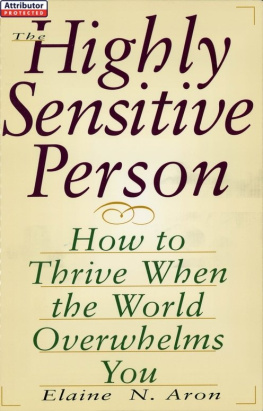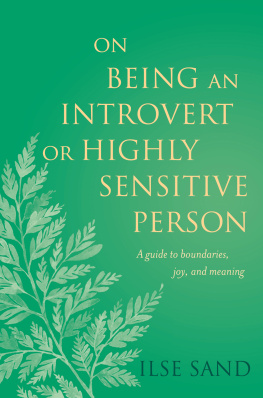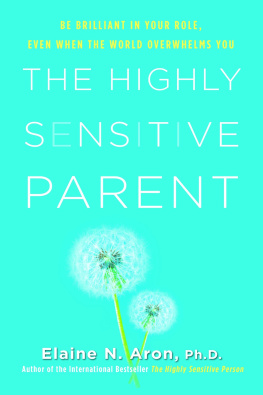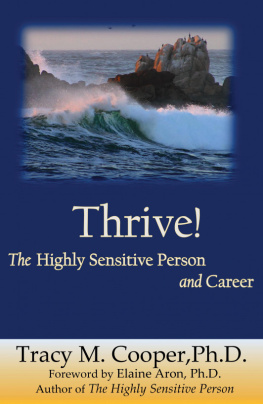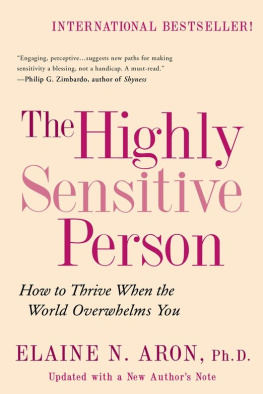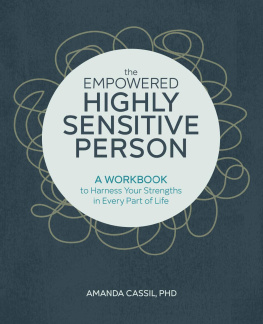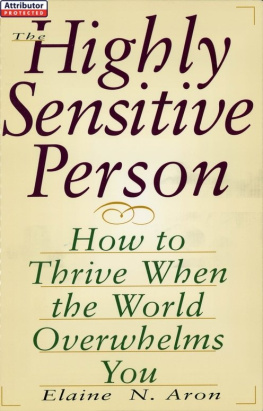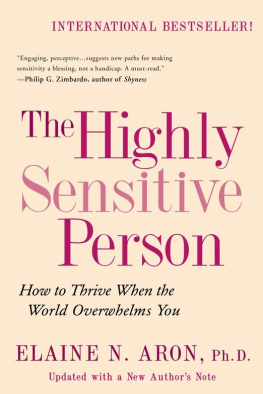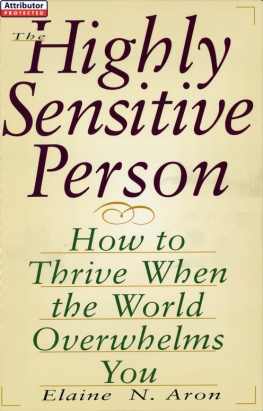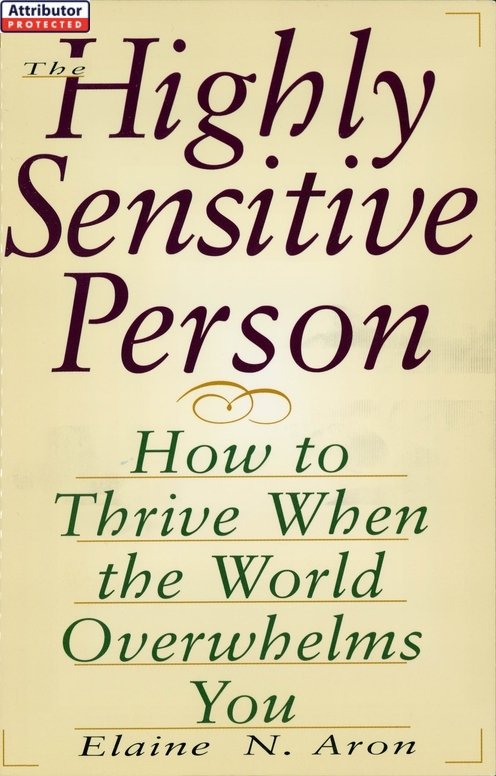Elaine N. Aron Ph.D. - The Highly Sensitive Person
Here you can read online Elaine N. Aron Ph.D. - The Highly Sensitive Person full text of the book (entire story) in english for free. Download pdf and epub, get meaning, cover and reviews about this ebook. year: 1997, publisher: Broadway Books, genre: Children. Description of the work, (preface) as well as reviews are available. Best literature library LitArk.com created for fans of good reading and offers a wide selection of genres:
Romance novel
Science fiction
Adventure
Detective
Science
History
Home and family
Prose
Art
Politics
Computer
Non-fiction
Religion
Business
Children
Humor
Choose a favorite category and find really read worthwhile books. Enjoy immersion in the world of imagination, feel the emotions of the characters or learn something new for yourself, make an fascinating discovery.
- Book:The Highly Sensitive Person
- Author:
- Publisher:Broadway Books
- Genre:
- Year:1997
- Rating:5 / 5
- Favourites:Add to favourites
- Your mark:
The Highly Sensitive Person: summary, description and annotation
We offer to read an annotation, description, summary or preface (depends on what the author of the book "The Highly Sensitive Person" wrote himself). If you haven't found the necessary information about the book — write in the comments, we will try to find it.
Do you have a keen imagination and vivid dreams? Is time alone each day as essential to you as food and water? Are you too shy or too sensitive according to others? Do noise and confusion quickly overwhelm you? If your answers are yes, you may be a Highly Sensitive Person (HSP).
Most of us feel overstimulated every once in a while, but for the Highly Sensitive Person, its a way of life. In this groundbreaking book, Dr. Elaine Aron, a psychotherapist, workshop leader and highly sensitive person herself, shows you how to identify this trait in yourself and make the most of it in everyday situations. Drawing on her many years of research and hundreds of interviews, she shows how you can better understand yourself and your trait to create a fuller, richer life.
In The Highly Sensitive Person , you will discover:
* Self-assessment tests to help you identify your particular sensitivities
* Ways to reframe your past experiences in a positive light and gain greater self-esteem in the process
* Insight into how high sensitivity affects both work and personal relationships
* Tips on how to deal with overarousal
* Informations on medications and when to seek help
* Techniques to enrich the soul and spirit
Elaine N. Aron Ph.D.: author's other books
Who wrote The Highly Sensitive Person? Find out the surname, the name of the author of the book and a list of all author's works by series.

